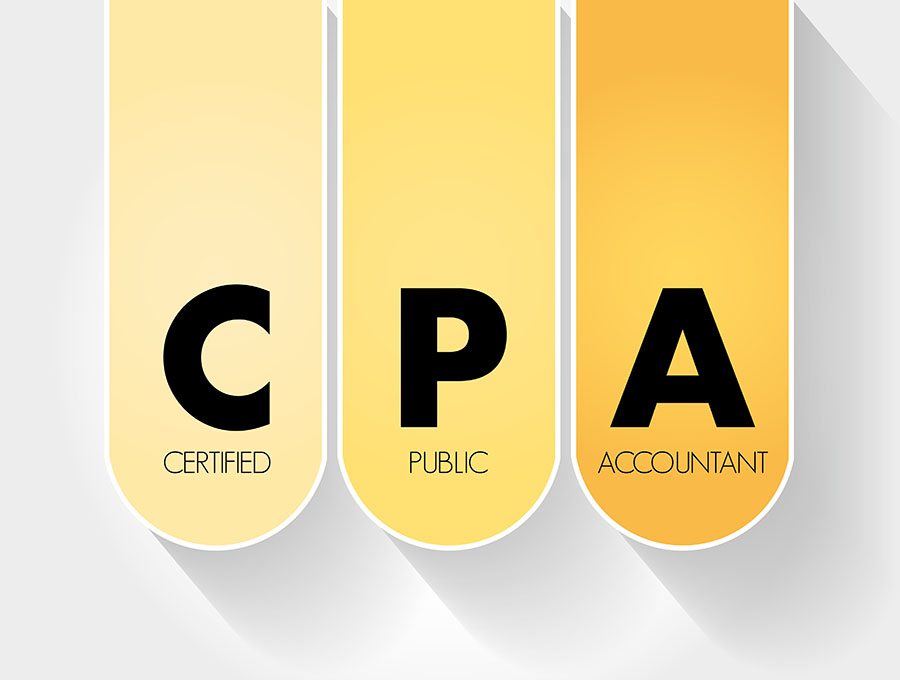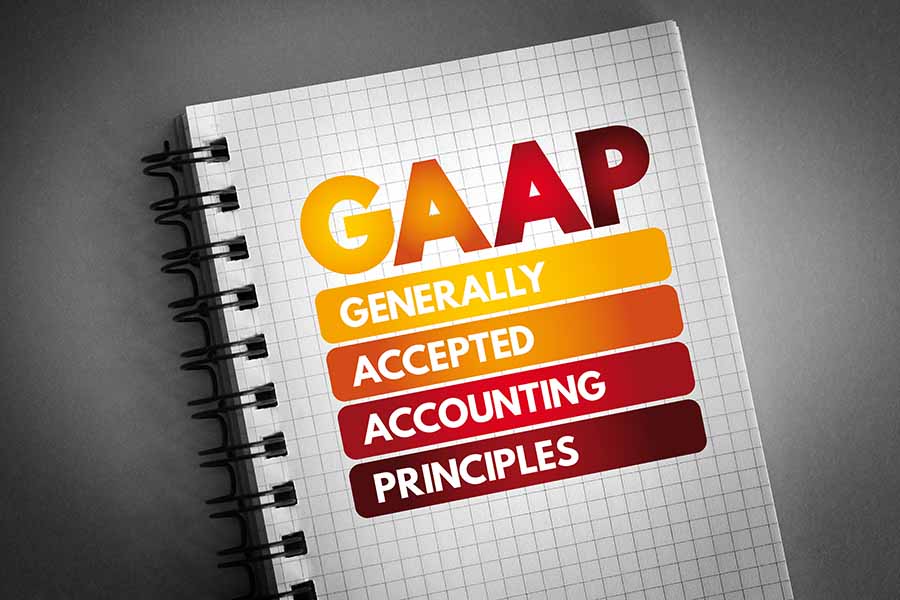An audited financial statement (FS) is a set of financial documents examined by an independent CPA. The audit report attached to the complete set of FS provides an opinion on whether the FS presents fairly, in all material respects, and on the company’s financial position, operations, and cash flows. It is mandatory for publicly listed companies and large nonprofits to have annual FS audits, while small businesses are only required to produce audited FS when asked to do so in specific circumstances.
Rather than an audited FS, small companies will often engage a CPA to provide reviewed or compiled financial statements, both of which offer a lower level of assurance than an audit.
Contents of an Audited Financial Statements
The complete set of audited financial statements The annual report is not an essential component of a complete set of audited financial statements. Companies only add them to supplement the information provided in the FS. contains the following documents, in order:
- Report of Independent Registered Public Accounting Firm (a.k.a. audit report)
- Profit and loss statement
- Statement of changes in equity
- Balance sheet
- Cash flow statement
- Notes to the financial statements
The audit report always precedes the actual FS because readers should first read the audit report to know the auditor’s opinion about the FS. Moreover, the audit report lends assurance to the FS, making it more credible and reliable for decision-making.
Contents of an Audit Report
- Title: The title must be Report of Independent Registered Public Accounting Firm with emphasis on the word “Independent.”
- Addressee: The addressee specifies the people to whom the report is addressed. Usually, the addressees are the shareholders. For example, the addressee can be stated this way: To the Shareowners and the Board of Directors of The Coca-Cola Company.
- Opinion: This section specifies the independent auditor’s opinion about the FS. It also discusses the following items:
- The period covered by the audit (e.g., from December 31, 2022 to December 31, 2023)
- The financial statements audited (e.g., consolidated statements of income, comprehensive income, shareowners’ equity, and cash flows, and its related notes)
- The standards used and referred to during the audit (e.g., US GAAP or auditing standards of the PCAOB)
- Basis of Opinion: This explains how the auditor arrived at their audit opinion (discussed later). If the auditor’s opinion is qualified, adverse, or a disclaimer, then this section will explain how the auditor reached the conclusion.
- Key Audit Matters (KAM): Though not required, KAM are areas the auditor deemed to be significant during the audit. The KAM points out specific items that the auditor wants the users of the financial statements to know right out of the gate.
- Responsibilities of Management and Those Charged with Governance: This section outlines management’s responsibilities towards the preparation of the FS. It also states the responsibilities of those charged with governance (e.g., board of directors). In other words, this section tells the reader that it is the company’s responsibility to present the FS in a fair and honest manner.
- Auditor’s Responsibilities for the Audit of the Financial Statements: This section outlines the scope of the auditor’s work and responsibilities. It also emphasizes that the audit can only provide reasonable assurance and that it can’t uncover all misstatements that might be present in the financial statements.
Only CPAs from an accredited auditing firm can perform an audit. Newly minted CPAs are also not allowed to conduct audits and sign their names in audit reports until they meet the minimum experience requirements and accreditations.
Uses of Audited Financial Statements
Audited financial statements provide reasonable assurance to the FS. In auditing and attestation, reasonable assurance is a high level of assurance—not absolute assurance—given by an independent auditor to tell the users that the FS is free from material misstatement. Hence, audited FS is more powerful and credible than unaudited FS, which is why audited FS are used in the following circumstances:
Required for Regulatory Compliance
The SEC requires all publicly listed companies to have an annual FS and internal controls audit to ensure the accuracy and reliability of FS information. The audited FS and the audit report should be attached to the Form 10-K report. Moreover, quarterly reviews of interim financial statements by an auditor are also required to ensure continued transparency to shareholders.
A financial statement review provides a lower level of assurance than an audit (i.e., limited assurance) because it doesn’t require extensive evidence gathering. Moreover, a review doesn’t give an opinion. An interim financial statement is issued during the fiscal year (i.e., quarterly or monthly) and covers a period of less than one year.
In a small business setup, audits are not mandatory unless an agency or institution requires you to do so as part of an application or accreditation process.
Necessary for Loan or Mortgage Application
As stated earlier, audited financial statements provide assurance that the FS is free from material misstatements. That’s why creditors prefer to look at audited FS—it is more reliable and credible, especially if the independent auditor gives an unqualified opinion. While not all financial institutions require audited financial statements for every loan application, they are typically mandatory for large loans.
Crucial for Building Investor Confidence
Another use of audited financial statements is to provide investors and stakeholders with a clear and reliable picture of the company’s financial health and performance. Audited FS provides investors with information that’ll help them assess if the company is:
- Performing well in terms of revenue and cash flow
- Using company resources properly by putting them to good use
- Operating profitably to sustain itself in the long run (i.e., operating as a going concern A going concern is an accounting principle wherein a company is expected to continue operating and not go out of business in the foreseeable future. )
- Providing the required return on investment to investors without significantly affecting the company’s overall financial position
Types of Audit Opinions
The highlight of the audited financial statements is the audit opinion or the independent auditor’s professional opinion about the company’s preparation and presentation of financial statements. In the field of attestation and assurance, the auditor’s opinion holds a significant weight in the financial statements, and any reader of the financial statement can rely on the auditor’s opinion.
When you see an auditor report, you need to take note of the following audit opinions.
Unqualified Opinion
An auditor gives an unqualified opinion (also called an unmodified opinion) when they find financial statements are presented fairly in accordance with the applicable financial reporting framework (i.e., the US GAAP). An unqualified opinion is also called a clean opinion and the best opinion that any company can get from an independent auditor.
Report of Independent Registered Public Accounting Firm
To the Shareowners and the Board of Directors of The Coca-Cola Company
We have audited the accompanying consolidated balance sheets of The Coca-Cola Company and subsidiaries (the Company) as of December 31, 2023, and 2022, the related consolidated statements of income, comprehensive income, shareowners’ equity, and cash flows for each of the three years in the period ended December 31, 2023, and the related notes (collectively referred to as the “consolidated financial statements”). In our opinion, the consolidated financial statements present fairly, in all material respects, the financial position of the Company on December 31, 2023, and 2022, and the results of its operations and its cash flows for each of the three years in the period ended December 31, 2023, in conformity with U.S. generally accepted accounting principles.
We also have audited, in accordance with the standards of the Public Company Accounting Oversight Board (United States) (PCAOB), the Company’s internal control over financial reporting as of December 31, 2023, based on criteria established in Internal Control—Integrated Framework issued by the Committee of Sponsoring Organizations of the Treadway Commission (2013 framework) and our report dated February 20, 2024, expressed an unqualified opinion thereon.
Qualified Opinion
When the auditor finds specific issues in the financial statements that don’t warrant an adverse or disclaimer of opinion, they issue a qualified opinion (also called modified opinion). The auditor will issue a qualified opinion if there are/is:
- Limitations of scope during the audit A limitations of scope means that the auditor wasn't able to perform the planned audit procedures.
- Disagreements between the auditor and management
- Inadequate disclosures in the financial statements that must be disclosed
- Misstatements in the financial statements
- Significant doubt about the company’s ability to operate at a going concern
Whenever an auditor issues this type of opinion, you should read the Basis of Opinion section to know why the auditor gave a qualified opinion. However, it’s very rare for companies to have qualified opinions in the final audit report because they strive to address and resolve all the issues pointed out by the auditor before the FSes are finalized.
In audit jargon, it’s called “qualified” because the auditor has qualifications for the company’s FS. These qualifications are issues that the auditor believes to be too significant to ignore. That’s also the reason why a clean opinion is officially called “unqualified” because the auditor has no qualifications for the company’s FS and believes it to be faithfully prepared and free from material misstatement.
Opinion on the Financial Statements
We have audited the accompanying consolidated balance sheets of [Company Name] as of [Date], and the related consolidated statements of income, comprehensive income, stockholders’ equity, and cash flows for the year that ended, and the related notes (collectively referred to as the “financial statements”).
In our opinion, except for the effects of the matter described in the Basis for Qualified Opinion section, the accompanying financial statements present fairly, in all material respects, the financial position of [Company Name] as of [Date], and the results of its operations and its cash flows for the year then ended in conformity with accounting principles generally accepted in the United States of America.
Adverse Opinion
An auditor issues an adverse opinion if the financial statements do not fairly present the company’s financial position, operations, and cash flows. It means that the misstatements discovered during the audit are not only material but also pervasive A pervasive misstatement is a type of misstatement that is not confined or isolated in a single account. Rather, it affects multiple accounts, which decreases the reliability and usefulness of the financial statements for decision making. .
The common reasons for receiving an adverse opinion are as follows:
- Material and pervasive misstatements exist in the financial statements at a widespread level.
- The company doesn’t follow the US GAAP.
- There are significant omissions and inadequate disclosures.
- Fraud is prevalent in the company, and it already affected the integrity of the financial statements.
Opinion on the Financial Statements
We have audited the accompanying consolidated balance sheets of [Company Name] as of [Date], and the related consolidated statements of income, comprehensive income, stockholders’ equity, and cash flows for the year that ended, and the related notes (collectively referred to as the “financial statements”).
In our opinion, because of the significance of the matters discussed in the Basis for Adverse Opinion section, the accompanying financial statements do not present fairly, in all material respects, the financial position of [Company Name] as of [Date], or the results of its operations and its cash flows for the year then ended in accordance with accounting principles generally accepted in the United States of America.
Disclaimer of Opinion
A disclaimer of opinion is when the auditor cannot issue an opinion and provide assurance to the financial statements. The common culprit for a disclaimer is when the auditor was unable to do their job due to scope limitations existing during the audit and didn’t have sufficient appropriate evidence to issue an audit opinion.
Here are some reasons why the auditor would issue a disclaimer:
- Scope limitations exist during the audit, such as the inability to gather sufficient appropriate evidence and the lack of accounting records.
- There is significant uncertainty about the company’s ability to operate on a going-concern basis.
- Management refuses to cooperate with the auditor in providing access to records or in interviewing personnel.
- The auditor’s independence is compromised.
Opinion on the Financial Statements
We were engaged to audit the accompanying consolidated financial statements of [Company Name], which comprise the balance sheet as of [Date], and the related statements of income, comprehensive income, stockholders’ equity, and cash flows for the year that ended, and the related notes to the financial statements.
Because of the significance of the matters described in the Basis for Disclaimer of Opinion section, we have not been able to obtain sufficient appropriate audit evidence to provide a basis for an audit opinion. Accordingly, we do not express an opinion on the accompanying financial statements.
Frequently Asked Questions (FAQs)
Typically, publicly listed companies and large nonprofits are required to have audited FS. However, banks and financial institutions may require audited FS for loan applications.
You need to hire an independent auditor to get audited FS. Auditing firms charge a professional fee per audit engagement, which can be costly depending on the firm. If you’re a small company, try to approach smaller firms and don’t go to the Big Four audit firms.
Bottom Line
An audited financial statement gives investors, creditors, and stakeholders more credibility and reliability than unaudited statements. With a CPA’s opinion, external users can make informed decisions based on the information in the FS.


